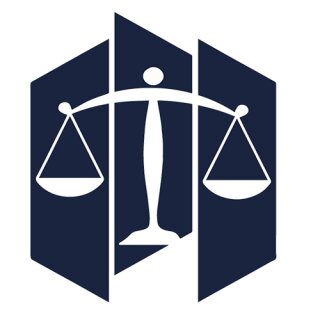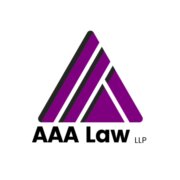Best Disability Insurance Lawyers in Canada
Share your needs with us, get contacted by law firms.
Free. Takes 2 min.
Or refine your search by selecting a city:
List of the best lawyers in Canada
About Disability Insurance Law in Canada
Disability Insurance in Canada is designed to provide financial support to individuals who are unable to work due to a disability. It can be offered through private insurance plans, employer-sponsored plans, or government programs such as the Canada Pension Plan (CPP) Disability Benefit. The goal is to replace a portion of lost income and ensure financial stability during periods of unexpected health challenges. However, the process of obtaining these benefits can be complex, requiring individuals to understand various legalities and procedures.
Why You May Need a Lawyer
While some straightforward disability claims are processed without issue, there are situations where legal assistance may be necessary. Common scenarios include:
- Denial of a disability claim, requiring appeals and detailed evidence.
- Disagreements over the extent of disability or eligibility for benefits.
- Delays in claim processing or receipt of benefits.
- Complex contractual language in private disability insurance policies.
- Coordination between various insurance plans or benefits.
- Seeking a fair settlement in cases of disputed claims.
Lawyers specializing in disability insurance can help navigate these challenges and ensure individuals receive the benefits they are entitled to.
Local Laws Overview
In Canada, disability insurance regulations can vary by province, though some aspects are governed federally. Key points include:
- Canada Pension Plan (CPP) Disability: A federal program providing benefits to those who have a severe and prolonged disability, affecting their ability to work.
- Employment Insurance (EI) Sickness Benefits: Offer temporary financial assistance to unemployed workers who are unable to work due to illness, injury, or quarantine.
- Provincial Disability Programs: Each province may have its own disability support programs, such as the Ontario Disability Support Program (ODSP) or British Columbia's Disability Assistance.
- Private Insurance Regulations: Governed by provincial insurance laws, detailing the obligations of insurers and protections for policyholders.
Understanding these regulations is essential to effectively accessing and contesting disability claims.
Frequently Asked Questions
What is disability insurance?
Disability insurance provides income replacement benefits when an illness or injury prevents you from working.
Who qualifies for government disability benefits in Canada?
Eligibility typically requires a severe, prolonged disability preventing employment, with specifics varying by program.
How long does it take to process a disability claim?
Claim processing times can vary, often taking several weeks to months, depending on the complexity and documentation required.
Can I appeal a denied claim?
Yes, most programs and insurers allow for appeals, which often require additional evidence and documentation.
What should I do if my claim is denied?
Consult with a legal professional to understand your rights and explore the appeals process or other options.
How can a lawyer assist with a disability claim?
A lawyer can provide guidance, assist with gathering evidence, negotiate settlements, and represent you in appeals.
Do I have rights if my insurance claim is delayed?
Yes, insurers are typically obligated to process claims within a reasonable timeframe, and legal recourse may be available for unreasonable delays.
Is there a difference between short-term and long-term disability insurance?
Yes, short-term covers temporary disabilities typically up to six months, while long-term covers extended periods of disability.
Are disability benefits taxable in Canada?
It depends on the source of the benefits; private insurance benefits may not be taxable, whereas government benefits might be.
Can I work part-time while receiving disability benefits?
Possibly, depending on the terms of your insurance policy or program regulations, though it could affect your benefit amount.
Additional Resources
For further assistance, consider reaching out to the following organizations:
- Service Canada: Offers information on the Canada Pension Plan and Employment Insurance support.
- Provincial Disability Support Programs: Visit your province’s official website for details on regional programs.
- Canadian Life and Health Insurance Association (CLHIA): Provides guidance on private health and disability insurance policies.
- Legal Aid: Provincial legal aid services can offer advice and assistance for qualifying individuals.
Next Steps
If you need legal assistance with a disability insurance claim, consider the following steps:
- Gather all relevant documentation, including medical records, insurance policy details, and any correspondence with the insurer.
- Contact a specialized disability insurance lawyer for a consultation to assess your case.
- Explore free legal advice services or legal aid if financial resources are a concern.
- Prepare a timeline and keep detailed records of all interactions related to your claim.
- Ensure you understand the terms, deadlines, and requirements for your specific insurance policy or program.
By following these steps, you can effectively navigate the complexities of disability insurance law and increase your chances of a successful outcome.
Lawzana helps you find the best lawyers and law firms in Canada through a curated and pre-screened list of qualified legal professionals. Our platform offers rankings and detailed profiles of attorneys and law firms, allowing you to compare based on practice areas, including Disability Insurance, experience, and client feedback.
Each profile includes a description of the firm's areas of practice, client reviews, team members and partners, year of establishment, spoken languages, office locations, contact information, social media presence, and any published articles or resources. Most firms on our platform speak English and are experienced in both local and international legal matters.
Get a quote from top-rated law firms in Canada — quickly, securely, and without unnecessary hassle.
Disclaimer:
The information provided on this page is for general informational purposes only and does not constitute legal advice. While we strive to ensure the accuracy and relevance of the content, legal information may change over time, and interpretations of the law can vary. You should always consult with a qualified legal professional for advice specific to your situation.
We disclaim all liability for actions taken or not taken based on the content of this page. If you believe any information is incorrect or outdated, please contact us, and we will review and update it where appropriate.
Browse disability insurance law firms by city in Canada
Refine your search by selecting a city.















